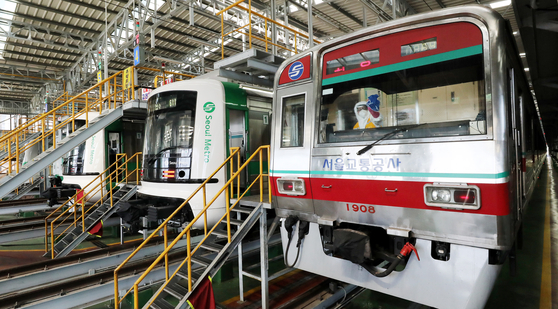
At the Gunja Vehicle Office of the Seoul Transportation Corporation in Seongdong-gu, Seoul, quarantine personnel are disinfecting subway line 1 trains to respond to the novel coronavirus infection (Corona 19). News 1
The Seoul Transportation Corporation, which operates the 2nd and 3rd stage sections of Seoul Subway Lines 1-8 and Line 9, predicted that this year’s deficit would reach 1.6 trillion won due to the chronic financial crisis and a sharp drop in income due to the Corona 19 incident. The KTO announced on the 16th that a debt default situation could occur due to a severe liquidity crisis caused by a free ride system for those over 65 years old.
Jung Seon-in, head of the public corporation’s media office, revealed the contents in a phone call with the press on the same day and explained that this is the official position of the corporation.
He added that the KTO raised 900 billion won in operating capital by issuing a corporate paper (CP) earlier this year, but it may be impossible to repay it, he added.
In recent years, the KTO has suffered a chronic deficit of hundreds of billions of dollars every year, and the net loss for the year amounted to 1.95 trillion won last year, when transportation revenues decreased by 27% in one year due to the Corona 19 outbreak. The city of Seoul expects that by the end of this year, there will be a shortage of about 1.5991 trillion won for construction.
In the first half of the year, KDHC made a plan to issue secondary construction bonds in the amount of 500 billion won and re-evaluate assets to lower the debt ratio. Not in a state.
The main causes of the chronic deficit are the fact that subway fares have been frozen for six years since 2015, and losses from free transportation such as elderly people amounting to hundreds of billions of dollars per year (2767 billion won last year).
The Seoul Metropolitan Government and the city council are internally discussing the increase in subway fares and demanding the government to compensate for the loss caused by the free transportation of the elderly, but this is difficult to realize right away.
Reporter Bae Jae-seong [email protected]
